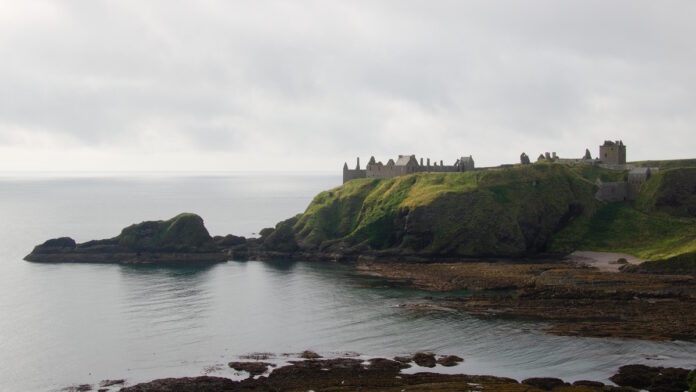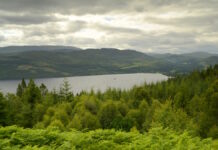Aberdeenshire Council in Scotland is to create a strategy to help develop and sustainably maintain a regional coastal path network.
The partnership will bring together different projects – both council and community-led – as part of an overarching vision to ensure there is a good quality continuous coastal path running between St Cyrus and Cullen which can be promoted for use linking in to natural, built and cultural assets along the route.
St. Cyrus sits just to the north of the River Esk, which forms the Aberdeenshire border with Angus. The Aberdeenshire coast ends just shy of Cullen, a village in Moray.
A key aim of the council’s strategy will be to enable and encourage local communities to deliver missing sections of the coastal path network.
At a meeting of Aberdeenshire Council’s Infrastructure Services Committee on June 15, councillors unanimously welcomed the strategy describing it as a “game-changer” for the region and a “boon for coastal communities.”
They acknowledged not only the benefits of the long-distance walking routes but also the benefits for the local economy and quality of life for local residents by giving them easy access for recreation, active travel and opportunities for healthier lifestyles.
The council’s Coast Aberdeenshire project, which was established in 2020, has provided information around the region’s requirements, focusing not only on the coastal paths, but path links to the coast, associated infrastructure such as car parks, toilets and interpretation, and various other assets which may benefit from repair, upgrade or interpretation.
There have also been community-led coastal path improvements in Aberdeenshire over recent years.
In the south of Aberdeenshire, since 2019, the community group Mearns Coastal Heritage Trail (MerCHaT) has been working with Tangleha Artists Collective with support from Aberdeenshire Council to develop and maintain a walking route joining Johnshaven with St Cyrus.
Following the work of MerCHaT, last summer the Lord Lieutenants of Banffshire, Aberdeenshire and Kincardineshire launched the Platinum Jubilee Coastal Path project, which looked to develop all of the coastal path from St Cyrus to Cullen and ensure the future sustainable management of it.
To ensure there is a good quality continuous coastal path, earlier this year the council hosted a meeting with stakeholders and local community groups to discuss the future development and management of the coastal path network.
There is a strong desire for the Coast Aberdeenshire project and council services to continue to repair and upgrade the existing sections of the coastal path where it has responsibility and where budget and external funding are available.
While it has been acknowledged that the council is not currently in a position to develop new sections of the coastal path, potential partners are keen for the local authority to support and build capacity in communities to help them deliver projects which link into and contribute to the overall development of the coastal path.
Infrastructure Services Committee chair Cllr John Crawley said: “By helping support and facilitate the future development of the Aberdeenshire coastal path network it will help deliver the aspirations of some partners and communities to link together coastal and inland paths into a potential long distance continuous route.
“We have pledged to continue supporting community groups and identify the various funding streams which could be utilised to develop new sections of the coastal path and the establishment of a forum for the project will also help in the coordination of these hugely important improvements.”
Vice-chair Cllr Isobel Davidson added: “We recognise the key role the council plays in helping support and facilitate the shared aspiration with communities and stakeholders to deliver a continuous route along the North East coast.
“We are pleased to support this as it will bring benefits to local communities and the local economy which long distance walking routes can provide.”









